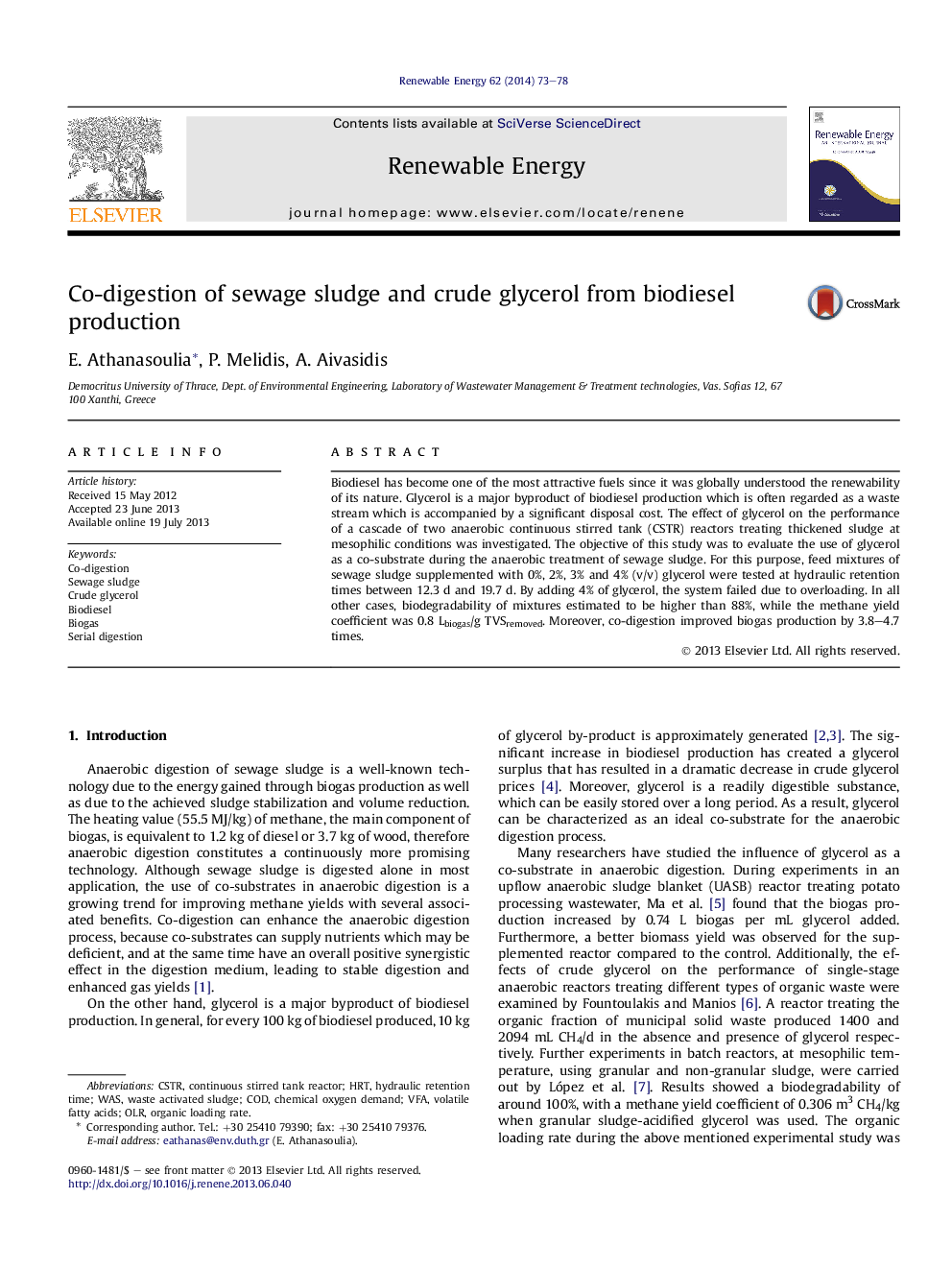| Article ID | Journal | Published Year | Pages | File Type |
|---|---|---|---|---|
| 6768623 | Renewable Energy | 2014 | 6 Pages |
Abstract
Biodiesel has become one of the most attractive fuels since it was globally understood the renewability of its nature. Glycerol is a major byproduct of biodiesel production which is often regarded as a waste stream which is accompanied by a significant disposal cost. The effect of glycerol on the performance of a cascade of two anaerobic continuous stirred tank (CSTR) reactors treating thickened sludge at mesophilic conditions was investigated. The objective of this study was to evaluate the use of glycerol as a co-substrate during the anaerobic treatment of sewage sludge. For this purpose, feed mixtures of sewage sludge supplemented with 0%, 2%, 3% and 4% (v/v) glycerol were tested at hydraulic retention times between 12.3Â d and 19.7Â d. By adding 4% of glycerol, the system failed due to overloading. In all other cases, biodegradability of mixtures estimated to be higher than 88%, while the methane yield coefficient was 0.8 Lbiogas/g TVSremoved. Moreover, co-digestion improved biogas production by 3.8-4.7 times.
Keywords
Related Topics
Physical Sciences and Engineering
Energy
Renewable Energy, Sustainability and the Environment
Authors
E. Athanasoulia, P. Melidis, A. Aivasidis,
